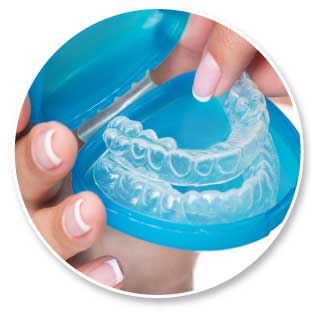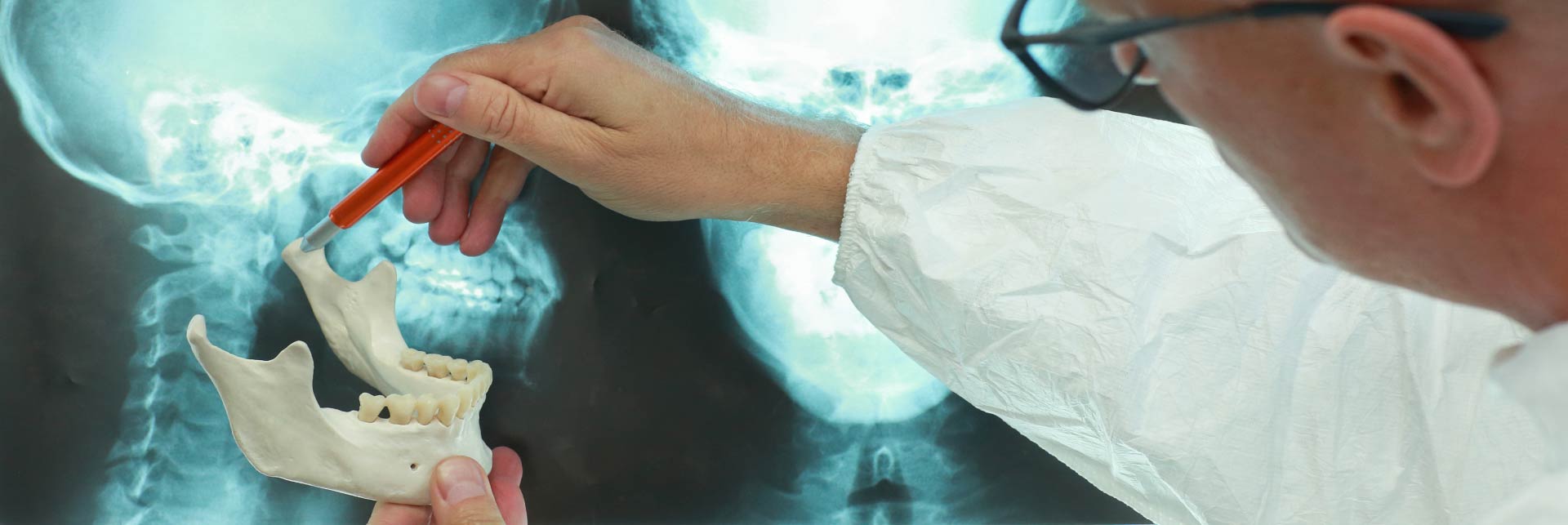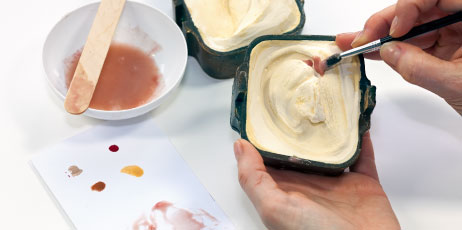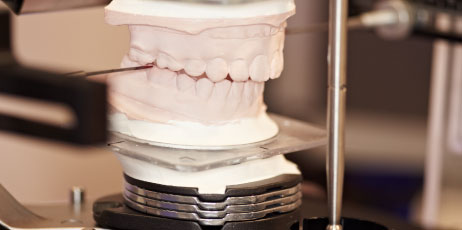South Jersey TMJ Treatment and Surgery
The South Jersey oral surgeons at Lanzi Burke have experience in both TMJ disorder treatment and TMJ corrective surgery. TMJ disorders develop for many reasons. You might clench or grind your teeth, tightening your jaw muscles and stressing your TMJ joint. Or, you may have a damaged jaw joint due to injury or disease. Whatever the cause, the results may include a misaligned bite, pain, clicking or grating noises when you open your mouth, or trouble opening your mouth wide.
How the TMJ Works
The temporomandibular joint (TMJ) is one of the body’s most complex joints. In a normal temporomandibular joint, it functions both as a ball and socket type joint and as a sliding (translating) joint. A healthy temporomandibular joint allows you to eat, talk, and swallow without pain. However, when a temporomandibular joint is diseased or damaged, it can hurt whenever you move your jaw. Sometimes just relaxing jaw muscles with no motion at all may cause pain. The source of pain in the head and neck is often difficult to diagnose. Care must be taken to rule out other facts that can cause facial pain.
Disorders of the temporomandibular joints often follow a certain pattern from the initial signs of dysfunction to degenerative joint disease. They are summarized as follows:
- Conditions that interfere with the sliding of the disc on the condyle the “knob”
- Excessive muscle movement creating a forward pull on the disc
- Thinning of the disc
- Stretching of the tissues that attach to the disc
- Functional displacement of the disc – single click, multiple clicking
- Functional dislocation of the disc
- Dislocation with reduction (catching) – This is where your jaw sometimes becomes locked in a position and you have to move your jaw to get it back to a comfortable position (referred to as periodic displacement of disc)
- Dislocation without reduction (closed lock) – This is where your jaw gets stuck, and requires your doctor to put it back into position (referred to as permanent displacement)
- Inflammatory arthritis (Rheumatoid arthritis)
- Degenerative joint disease (Osteoarthritis)
What are the TMJ Treatment Options?
Non-Surgical TMJ Treatment
Upon diagnosing your current TMJ disorder your doctor may prescribe some or all of the following conservative (reversible) therapy.
- Emotional stress therapy (relaxation, patient awareness, voluntary avoidance).
- Exercise
- Prescription medications (i.e. Anti-inflammatories, muscle relaxers)
- Physical therapy appliances (i.e. splint, night guard, occlusal guard)
- TENS unit. This machine stimulates your muscles with a slight electric charge.

TMJ Surgery
Surgery can help restore your jaw joint and eliminate the pain and other symptoms of TMJ disorders. With other treatment available, surgery is rarely needed, especially if a problem is diagnosed and treated early. In some cases, however the joint becomes so severely damaged that surgery is needed to correct it.
- Arthroscopy/Arthrocentesis – These procedures are used for localized joint pain that doesn’t respond to other treatment. Your doctor inserts a tiny instrument (arthroscope) through a small incision or used small needles (arthrocentesis) to flush the joint and insert an anti-inflammatory agent.
- Soft Tissue Repair – People with severe soft tissue damage may need this procedure to tighten up stretched connective tissue and ligaments. It also puts the disk back into position, releasing “locked” jaws.
- Joint Restructuring – This surgery is used primarily for arthritis patients with badly deteriorating joints, such as severed disks or disks with holes in them. The condyle is smoothed and the joint is restructured. In some cases, part or all of the joint may be replaced with an artificial joint.








